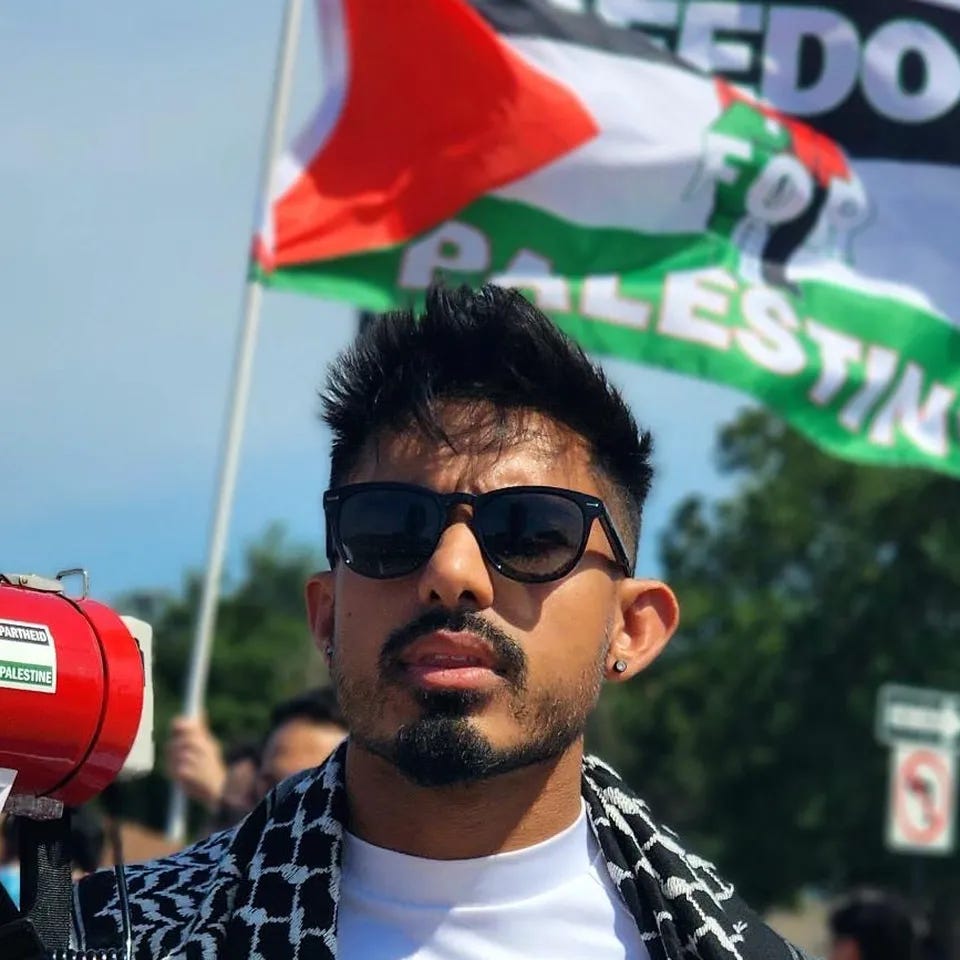Texas Activist Faces New Perjury Charge After Church Graffiti Conviction Sparks Free Speech Debate
A North Texas activist who received a felony hate crime dismissal now faces perjury charges, which have sparked fresh arguments about free speech limits in Texas.
Raunaq Alam received instructions to surrender on September 25, 2025, during an Arlington, Texas, press conference after learning about his aggravated perjury indictment from Tarrant County prosecutors, according to his lawyer, Adwoa Asante. The Tarrant County prosecutors brought an aggravated perjury charge against Alam because of his statements made during his September trial about vandalizing Uncommon Church in Euless.
The Original Incident
Security cameras at Uncommon Church recorded Alam and two other activists committing vandalism by spray-painting anti-Israel graffiti on church walls during March 2024. The vandalism targeted the church building with graffiti that included “F*** Israel” and swastikas and inverted red triangles, which symbolize Hamas, near an Israeli flag displayed on a flagpole. The nondenominational church under co-pastors Brad and Josie Carignan has maintained strong Israeli support since the October 7, 2023, Hamas attacks. The graffiti attack caused Brad Carignan to express his profound sadness because he felt Gentile churches should support Jewish people.
From Misdemeanor to Major Prosecution
What initially appeared to be a straightforward vandalism case quickly escalated into a high-stakes legal battle. FBI agents arrested Alam at his workplace, a T-Mobile store in Euless, on March 25, 2024. Euless police officers then searched Alam’s vehicle. They allegedly discovered less than one gram of psilocybin mushrooms before obtaining a search warrant, leading to an additional drug possession charge that remains pending, according to court documents.
Initially offered probation on a misdemeanor graffiti charge, Alam saw that the offer was revoked within a week. Tarrant County District Attorney Phil Sears assigned Assistant District Attorney Lloyd Whelchel—a prosecutor typically reserved for death penalty cases—to handle the matter. The charges were elevated from a misdemeanor to felony criminal mischief and further enhanced with hate crime allegations, potentially exposing Alam to up to 10 years in prison.
The Controversial Trial
The September 2025 trial brought together historical events from the Middle East with First Amendment legal cases heard in Tarrant County courtrooms. Defense attorney Adwoa Asante showed evidence that Alam used his words to oppose foreign government actions instead of directing them at Jewish people. The defense attorney, Adwoa Asante, showed the jury that Raunaq Alam became a target of government persecution because of his beliefs.
Asante repeatedly explained that Alam made his decision after watching the Gaza genocide broadcast live on television. The defense attorney, Asante, demonstrated through historical examples that activists who fought against injustice during the Vietnam War era later proved their statements to be accurate.
The Jury’s Verdict and Judge’s Override
The Tarrant County jury required more time to reach a verdict on Alam’s felony criminal mischief case, but they five years of probation and a $10,000 fine instead of the possible two-year prison term. Convicted him of the offense without proving the hate crime enhancement charge. The jury chose to sentence Alam to
Judge Brian Bolton raised Alam’s punishment by 180 days because he considered the graffiti to be “disgusting,” according to The Guardian. Alam stated during his following interview that he believed he would avoid court consequences.
The jury reached its verdict while District Attorney Phil Sears stated, “We respect the jury’s decision. The defendant received an appropriate punishment for damaging a religious site because this sentence holds special significance”.
The Perjury Charge Emerges
The 2025. The press conference at Arlington’s park, where Alam addressed supporters and media members, ended when Asante delivered an emergency announcement about prosecutors filing aggravated perjury charges against his client, who needed to enter a legal battle. Alam's legal struggle entered a new phase with a sudden, dramatic event on September 25, leading to his client's immediate surrender to authorities.
The Dallas Observer states that the perjury charge stems from statements Alam presented during his court trial. The trial proceedings included Whelchel asking Alam to explain the content of his phone messages, which contained party information and drug-related discussions. The prosecutor accused Alam of deception, yet Asante pointed out that Alam spent over a year under bond supervision while completing all drug screening tests.
The new charge against Alam surfaced while he remained free on bond, awaiting an appeal of his criminal mischief conviction. The Texas Observer documented that Alam has spent five separate periods inside jail cells because of the church graffiti case.



